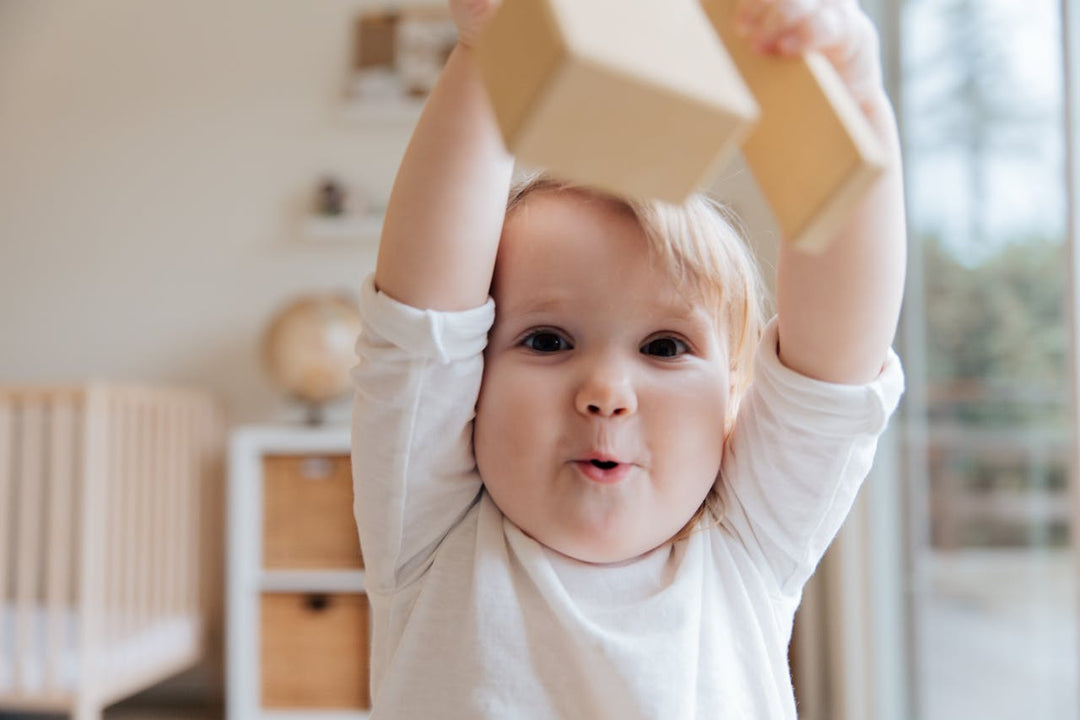Montessori-Inspired Sensorial Activities: Enhancing Learning and Development for Babies and Toddlers

The Montessori method places a strong emphasis on sensorial experiences and activities, recognizing the critical role they play in a child's learning and development during the early years. Montessori-inspired sensorial activities provide babies and toddlers with stimulating, hands-on experiences that engage their senses, promoting cognitive development, fine motor skills, and language acquisition. Parents, caregivers, and educators can incorporate Montessori sensorial activities into daily routines to foster a nurturing environment that supports the holistic development of young children.
In this article, we will explore the benefits of Montessori-inspired sensorial activities for babies and toddlers, and provide a comprehensive guide to engaging activities that enhance early learning and development. We will also offer practical tips for seamlessly incorporating these sensorial experiences into your daily interactions with your little one, crafting a balanced and age-appropriate learning environment.
Montessori-Inspired Sensorial Activities: Enhancing Learning and Development for Babies and Toddlers
Montessori-inspired sensorial activities offer babies and toddlers rich learning experiences that stimulate their senses and support holistic development. In this article, we'll delve into the importance of sensorial activities in Montessori education and provide a comprehensive guide to engaging activities for different age groups. We'll also share practical tips for incorporating these activities into daily routines and creating a prepared environment that supports sensorial learning.
Understanding the Importance of Sensorial Experiences in Montessori Education
Sensorial experiences are considered integral to Montessori education, as they play a vital role in a child's early learning and development:
- Cognitive Development: Sensorial activities promote cognitive development by engaging multiple areas of the brain, stimulating critical thinking, problem-solving skills, and the ability to process information.
- Fine Motor Skills: Hands-on sensorial activities help children develop fine motor skills, hand-eye coordination, and muscle control, which are essential for everyday tasks and self-care.
- Language Acquisition: Exposure to rich sensory experiences supports language development, as children learn to describe their sensations, emotions, and experiences with new vocabulary.
- Independence and Confidence: Sensorial activities empower children to explore the world around them, fostering independence and confidence as they make discoveries and learn through hands-on experiences.
Montessori Sensorial Activities for Babies: Stimulating Growth and Development
Babies benefit significantly from exposure to sensorial experiences, as their brains rapidly develop during the first year of life. Montessori-inspired activities for babies include:
- Tactile Play: Introduce various textures, such as soft fabrics, crinkly papers, and textured toys, to stimulate touch and tactile awareness.
- Auditory Experiences: Expose babies to a variety of sounds, including music, nature sounds, and soft rattles, encouraging them to listen and respond to auditory stimuli.
- Visual Stimulation: Offer contrasting colors, simple patterns, and mobiles, allowing babies to focus on and track visual stimuli as they develop their vision.
- Taste Exploration: Encourage taste exploration by introducing a variety of age-appropriate, flavorful foods, including pureed fruits, vegetables, and baby-safe spices during mealtime.
Montessori Sensorial Activities for Toddlers: Encouraging Exploration and Independence
As toddlers grow more curious and independent, sensorial activities that foster exploration and autonomy are crucial:
- Scent Sorting: Create a scent-sorting activity using small containers filled with different fragrances, such as cinnamon, vanilla, or lavender, and encourage your toddler to identify and differentiate them.
- Water Play: Provide opportunities for water play, allowing toddlers to explore pouring, scooping, and splashing while engaging multiple senses.
- Texture Matching: Create a texture-matching game with various materials, such as sandpaper, cotton, and felt, allowing your toddler to match and compare textures.
- Sound Shakers: Make sound shakers with sealed containers filled with rice, beans, or beads, and encourage your toddler to listen and match the sounds.
Practical Tips for Incorporating Montessori Sensorial Activities into Daily Routines
To maximize the benefits of Montessori sensorial activities, incorporate them into your child's daily routines:
- Engage in Everyday Activities: Include your child in daily tasks, such as cooking, gardening, or laundry, offering opportunities to explore different textures, smells, and sounds.
- Nature Walks: Encourage outdoor exploration by taking nature walks, allowing your child to observe, interact, and collect items from the environment.
- Pairing Activity with Conversation: Pair sensorial activities with rich language experiences, describing sensations and emotions, and encouraging your child to describe their experiences.
- Offer Choice and Independence: Permit your child to make choices, select activities, and explore at their own pace, fostering independence and self-directed learning.
Creating a Prepared Environment to Support Sensorial Learning
A prepared environment is essential for promoting sensorial learning and development:
- Organized and Accessible Spaces: Design spaces with open shelves and low storage, making materials easily accessible and inviting for little hands to explore.
- Age-Appropriate Materials: Offer a variety of age-appropriate materials and resources, including toys, tools, and objects that engage the senses and promote exploration.
- Safe Spaces: Create designated areas for focused sensorial exploration, ensuring all spaces are safe, uncluttered, and conducive to learning.
Conclusion:
Montessori-inspired sensorial activities stimulate early learning and development for babies and toddlers, engaging their senses, developing cognitive skills, and fostering independence and confidence. By incorporating sensorial experiences into daily routines and creating a prepared environment, parents, caregivers, and educators can provide rich, hands-on experiences that support holistic growth and development.
Embark on the journey of incorporating Montessori sensorial activities into your child's life and witness the transformative effects on their learning and wellbeing. Connect with our team at The Topponcino Company for more information about our Montessori bed bumper pillows and other products.












